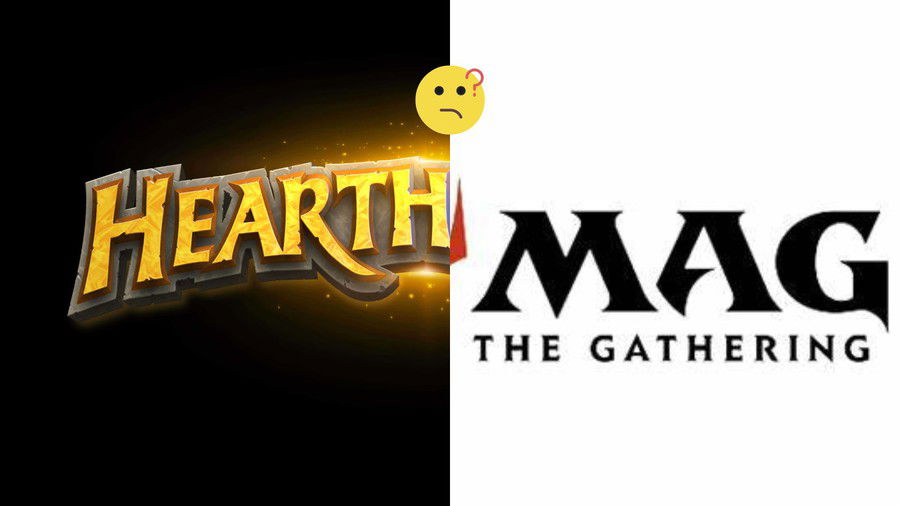In 2015, when we got the League of Explorers set, as well as the adventure itself, we got a new keyword: Discover.
At the time, we had no idea how much this keyword would impact the game, nor if it would pop up again in future sets. Discover was the first mechanic to return in a second set after its first release (if we ignore the classic set, obviously).
The Mechanic Itself
Every Hearthstone player knows this keyword, or should know it. Since 2015, it has been in many sets, and usually influences the game dramatically. Numerous Discover cards have been nerfed since the mechanic first showed up in 2015.
Ad
In this article, we'll briefly explain the history of this incredibly popular keyword and what it changed in the game. But first, let's see what it actually does.
What is Discover?

Discover is a keyword that lets you pick one out of three randomly generated cards. This means that, if a card says, "Discover a spell", it will give you 3 randomly generated cards to pick from.
Note: The choices are always valid for the format you're playing. If you're playing Standard, you'll only see cards that are available to play in Standard.
Is Discover Healthy for the Game?

It is incredibly difficult to answer this question. It is true that Discover brings an element of unpredictability to the game, and makes the matches more diverse and less repetitive. However, at the same time, it lowers the game's competitiveness because it introduces variants that are impossible to predict in a competitive setting. A great example of this is the famous "Paveling Book" case. In the 2016 Hearthstone World Championships, the champion won because of a randomly generated card.
Of course, Babbling Book doesn't have Discover, but its effect, which decides matches through RNG, still impacts the game anyway.
We'll return to this question soon!
History
Now that we know how Discover works, let's delve deep into its history.
First Versions

During its development, Discover was meant to be a middle ground between cards that are entirely random, like Babbling Book itself, and consistency cards, such as tutors and card draw.
The original plan was to make the game more interesting by introducing more variables, but without hurting player agency by letting them choose which card they wanted to use. Besides this, Discover was designed a a strong mechanic that didn't boost the consistency of the deck itself. In this sense, we can say Blizzard definitely got it right.
Development

During Discover's development, "Team 5" stumbled upon several issues. After all, back then, Discover was entirely new, and was only possible in digital card games.
The dev team tested out different places the "discovered card" could go, like the top of your deck, or just shuffled in the middle of it. The first option was discarded because of the game's "shuffle" mechanics, which could make the card in question just get lost forever in your deck and not be drawn until the end of the match. This would make Discover irrelevant. Additionally, if you drew it on your next turn, this would completely ruin the "surprise" and "excitement" of playing Discover cards.
One of the last decisions in this process was to restrict this effect to neutral and class cards. Before, Discover created any card, which means it was even more unpredictable, and also weakened the identity of each class. To balance the fact there were more neutral cards in the game than class cards, they increased the likelihood of getting class cards. It was now four times more likely to see a card of the class you were playing. Without this, it was just too likely to see only three neutral cards as your choices.
Ad
This change was reverted after Patch 15.2.0.33717, five years after Discover was born. Cards that Discover other cards from a random pool no longer apply this class bonus. Since then, Discover has been the same as ever, and it never changed again.
Competitiveness

Discover became quite powerful throughout the years, and still is to this day. Several original Discover cards still pop up in tournaments. If you can't remember any of them (or just don't know), these are the original Discover cards: Dark Peddler, Ethereal Conjurer, Gorillabot A-3, Jeweled Scarab, Museum Curator, Raven Idol, Tomb Spider, Arch-Thief Rafaam, and Sir Finley Mrrgglton.
Many of them are still popular in Wild decks right now, and a few others see play in Standard when they're added to the Core set. We got more and more Discover cards after each set, and they became increasingly more popular as the years went on. It is incredibly rare to see a deck that doesn't use Discover nowadays.
From its very early days, we knew it was here to stay.
Patch Notes
After its development, Discover didn't change much, but it wouldn't be right to write about the history of this mechanic without mentioning its patches. Here's a brief summary of them:
Patch 4.0.0.10833 (2015-11-10): Discover is added to the game.
Patch 15.2.0.33717 (2019-09-10): Cards that Discover cards from a random pool no longer apply a "class bonus".
Server Side Patch (2020-08-13):
Discover cards can no longer Discover themselves.
Cards that create "random cards" can no longer create themselves.
Well, Is Discover Healthy for the Game?

This is still an incredibly difficult question to answer. Certainly, its effect is now more worrisome than it was before. The number of Discover cards only goes up, set after set, as does their power level. Recently, we witnessed the power of School Teacher, an incredible generic card that offers you outs for tough situations. Generating extra resources is getting even more common, and many matches are decided because of a randomly generated card.
Is the mechanic itself a problem? Maybe not. It is, actually, one of the best features that makes Hearthstone different from physical TCGS. It has, however, spiraled a bit out of control recently.
Because of how powerful they are and how they let you create an almost infinite number of resources, cards with this keyword need to be balanced carefully. The dev team needs to take it into account any time they create a new set. Discover is about how fun and unpredictable it is to watch and play the game, and it might be responsible for keeping Hearthstone alive all these years.
What about you? What did you think of Discover? Is it problematic? How many games have you lost to it? Tell us all about it in our comment section below!
Ad
Final Words
If you want to see more about Hearthstone, check out this article about Magic: The Gathering cards that look a lot like Hearthstone cards!









— Comments0
Be the first to comment